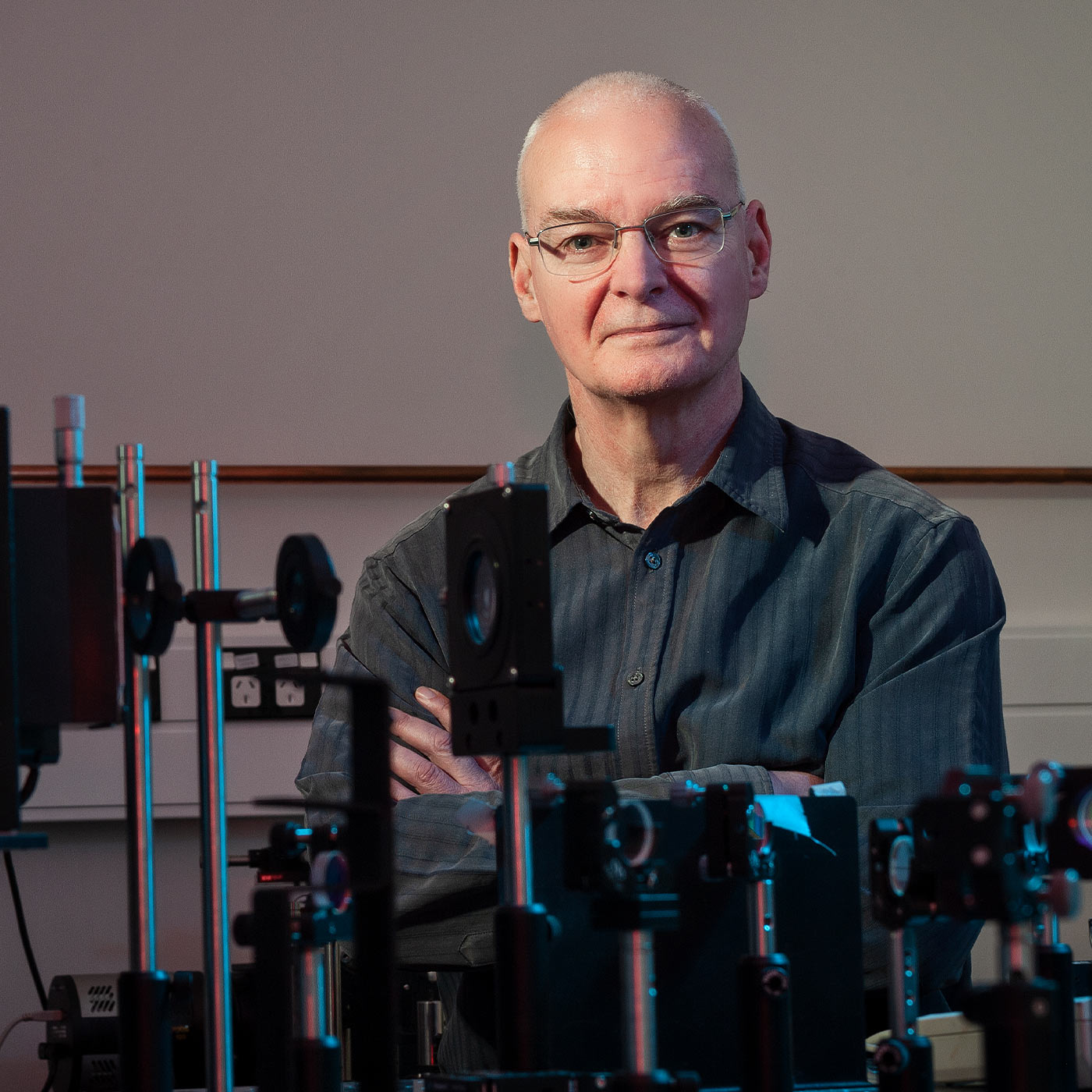UniNews
UniNews
University appoints new Vice-Chancellor
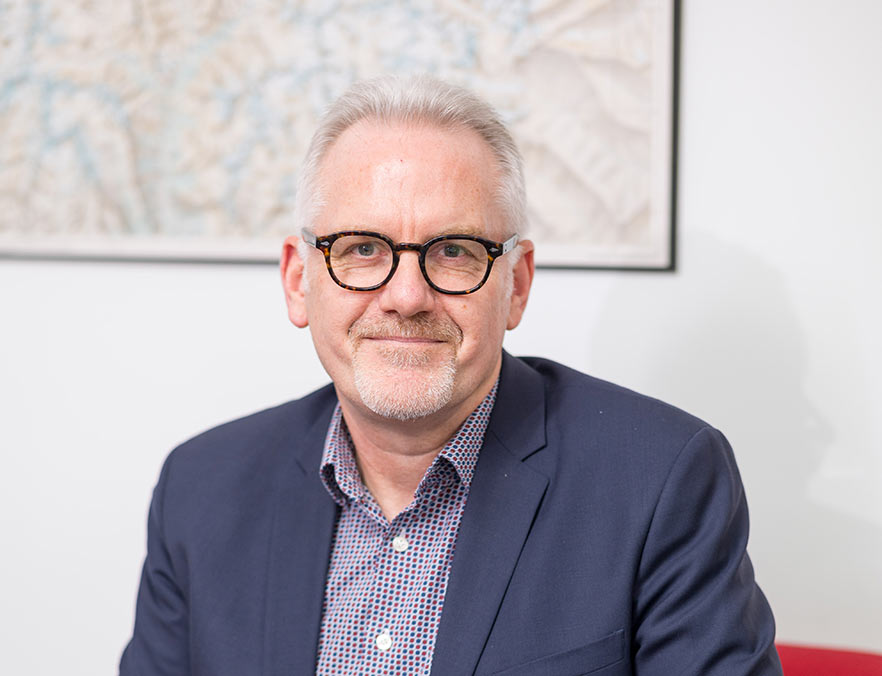
Otago's next Vice-Chancellor Professor David Murdoch:
“I am very much looking forward to beginning in the role next year and working with staff, students and the many groups of people who are important to me and the University's future.”
Professor David Murdoch has been appointed as the University of Otago's next Vice-Chancellor, commencing in early 2022.
Murdoch, a distinguished academic and recognised world-leader in the prevention and treatment of infectious diseases, particularly pneumonia and other respiratory infections, is currently Dean and Head of Campus at the University of Otago, Christchurch (UOC).
He was awarded the University's Distinguished Research medal in 2020, was the Head of Pathology (UOC) during the Canterbury earthquakes, and has been involved in the planning of Te Papa Hauora, the Christchurch Health Precinct, including a new building for the University's campus.
Among Murdoch's other notable achievements are a leading role in a Bill and Melinda Gates Foundation-funded global study of childhood pneumonia that changed the way the disease is diagnosed, treated and prevented in developing countries; and years of research that has re-written the world view on Legionnaires' disease. He is also the co-director of the One Health Aotearoa research alliance, a diverse network of infectious disease experts working to address health hazards at the human, animal and environmental interface.
He has advised the New Zealand government during the COVID-19 pandemic and has been a member of the Strategic COVID-19 Public Health Advisory Group. He was also one of three international experts invited to advise the Oxford University team developing a vaccine for COVID-19.
Murdoch says he is honoured to take on the role of Vice-Chancellor. “I care deeply about the University. I am very much looking forward to beginning in the role next year and working with staff, students and the many groups of people who are important to me and the University's future.”
Murdoch graduated with a Bachelor of Medicine and Bachelor of Surgery from the University of Otago in 1985, and later a Doctor of Medicine in 2003. He also has a Master of Science degree in Epidemiology from the University of London.
As a young doctor he worked in a very remote Nepalese hospital, which greatly influenced his future career as an infectious disease specialist and researcher.
Otago Chancellor Dr Royden Somerville says Murdoch is a values-driven and empathetic academic leader who has a demonstrated record in developing positive organisational structures that encourage diversity and inclusiveness.
“He is also a strong advocate for equity, global citizenship and Te Tiriti-led partnership. He will be an outstanding leader who will ensure that we are well positioned to face the future, and confront challenges and embrace opportunities of the 21st century.
“I know that he is committed to building the University's future as a leading public university with a rich heritage, not only here in Aotearoa, but also internationally.”
An extended profile of Professor Murdoch was featured in the Otago Magazine issue 51:
University of Otago Magazine issue 51
Otago wins prestigious national teaching award
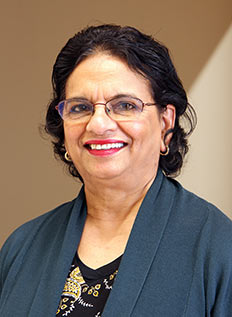
Dr Latika Samalia
For the seventh time in 10 years, the University of Otago has won Aotearoa's top tertiary teaching award, with Dr Latika Samalia, of the Department of Anatomy, being named the Ako Aotearoa Prime Minister's Supreme Award winner for 2021.
This top award follows her Sustained Excellence Award and the Supporting Pacific Learners endorsement announced in August.
Otago made up four of the nine Excellence in Teaching awardees – Samalia was joined by Tourism's Professor Hazel Tucker, Theology's Professor Tim Cooper and the Department of Management's Associate Professor Diane Ruwhiu (Kaupapa Māori category).
Originally from Fiji, Samalia trained as a doctor and worked as an obstetrician and gynaecologist before making the switch to teaching.
She now teaches up to 750 students in some weeks in five papers across a number of undergraduate and postgraduate clinical courses, passing on her knowledge of anatomical structures and clinical skills to future health professionals.
Samalia has a strong focus on Pacific students and was instrumental in developing orientation sessions for Pacific and Māori students.
She says receiving the supreme award came as a “huge shock” and the announcement left her shaking.
Deputy Vice-Chancellor (Academic) Professor Pat Cragg says these awards are an important illustration of the value of teaching at the University.
“We are immensely proud of all our teachers and, in particular, of the four award winners this year who deliver outstanding experiences for our students.”
Aspirational vision for Dunedin health precinct
The University of Otago has revealed a more than $1 billion vision for a health precinct stretching from the new Dunedin Hospital to the School of Dentistry which could offer a “once-in-a-generation chance” to reshape Dunedin's city centre.
The 20- to 30-year aspirational plan includes: a purpose-built medical research facility co-located on the new Dunedin hospital site; several new ultra-modern health sciences buildings; and upgrades to the University's historic medical buildings.
Chief Operating Officer Mr Stephen Willis says the vision relied on key partners, including Ngāi Tahu, the Ministry of Health, the Southern District Health Board and the Dunedin City Council.
“This is an opportunity for growth, innovation and industry partnership,” he says. “We want to future-proof the University's world-class health sciences education and research while strengthening our relationship with our partners and the city.”
Feasibility work has started on a $240 million education-focused health sciences building on the corner of Frederick and Malcolm Streets.
Christchurch project proceeds
The University Council has approved final and full funding for a planned $178 million (total project) building on the University of Otago, Christchurch, campus, at 24 Oxford Terrace in the heart of Te Papa Hauora – the Christchurch health precinct.
Acting Vice-Chancellor Professor Helen Nicholson says this will be the biggest construction project the University has undertaken to date, and will enable the growth of the world-class health science research and education programmes happening on the Christchurch campus.
The six-level, 5-Star Green Star development is expected to be completed in 2025.
Otago tops performance indicators
The University of Otago has again topped the key indicators that measure the educational performance of students at New Zealand's universities.
In the Tertiary Education Commission's annual Educational Performance Indicators, Otago ranked first for overall student qualification completion, first-year retention, and progression to higher levels of study; and ranked third for course completion.
Otago also ranked well in measures for Māori and Pacific, topping three categories for Māori students and one for Pacific.
International rankings
In the latest QS subject rankings 13 Otago subjects were placed in the top 100 globally, including five subjects in the top 50 (up from four last year). The University's top-50 subjects are: sports-related subjects (14th); anatomy and physiology (49th); dentistry (43rd); theology and religious studies (47th); and archaeology (48th). Those in the 51-100 band are: anthropology; development studies; earth and marine science; education; nursing; performing arts; philosophy; and psychology.
QS has also ranked Otago's online MBA 13th internationally. It ranked number one in the world for class experience, 24th for class profile and employability, and 18th for faculty and teaching.
The Department of Tourism was ranked first in New Zealand and 24th in the world by the Shanghai Ranking Consultancy in its latest global university subject rankings.
Funding successes
University of Otago scientific research projects have received more than $16 million from the Ministry of Business, Innovation and Employment (MBIE) Endeavour Fund. Associate Professor Christopher Moy (Geology) secured Otago's sole research programme grant, in partnership with Otago Honorary Professor Gary Wilson (now GNS Science). Their five-year, $8.6 million project is looking to find a pathway towards carbon neutrality by analysing the future of Fiordland, one of New Zealand's largest natural carbon sinks.
A further eight Otago researchers were also successful in securing Endeavour Fund Smart Ideas grants, which are each valued at $1 million over three years.
Otago researchers received around $13 million in the Health Research Council's (HRC) July funding round to support 13 significant projects. These include investigations into the impact of diabetes on access to cancer services, the potential benefits of lung cancer screening around Māori, the immunity to measles in young adults, improving the health of Māori affected by psychosis, and a new stomach cancer drug delivery system. Dr Allamanda Faatoese (UOC) also received a $1.1 million Pacific project grant to investigate heart peptides in Pasifika and Pākehā New Zealanders.
Better outcomes for women suffering from New Zealand's most common gynaecological cancer and a bioactive toothpaste that will mean fewer visits to the dentist were among University of Otago projects funded in the HRC's Emerging Researcher and Explorer funding rounds. In total, nine Otago researchers received almost $1.65 million.
Seven Otago researchers were awarded funding in the HRC's Feasibility Studies grants with a total of $1.74 million for projects ranging from anti-inflammatories and physiotherapy for people with knee osteoarthritis, preventing subsequent injuries and community-based intensive activation therapy for major depression.
The University of Otago, Waitematā DHB, and Auckland DHB also received a $1.96 million grant from the Global Alliance for Chronic Diseases, via the HRC. This will fund the first trial of lung cancer screening in New Zealand, focusing on Māori, whose mortality rates from the disease are up to four times higher than other ethnic groups.
First for Otago Business School
The Otago Business School is the first in New Zealand to be invited to join the Global Business School Network (GBSN). Founded in 2003 by the World Bank, the GBSN is an independent non-profit organisation based in Washington, comprising more than 100 business schools. Its purpose is to help grow management and entrepreneurial talent in the developing world to help generate prosperity.
2022 Arts Fellows named
The University of Otago's 2022 Arts Fellows have been named.
The 2022 Robert Burns Fellow is Albert Belz; Sean Donnelly is the Mozart Fellow; Michael Parmenter is the Caroline Plummer Fellow in Community Dance; Swapna Haddow is the University of Otago College of Education Creative New Zealand Children's Writer in Residence Fellow, and Sorawit Songsataya has received the Frances Hodgkins Fellowship.
Their projects will explore a wide range of topics with a common thread; understanding and embracing diversity.
Appointments
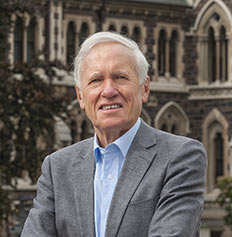
Emeritus Professor Sir David Skegg
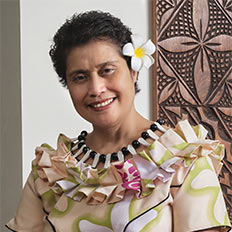
Faumuina Professor Fa'afetai Sopoaga
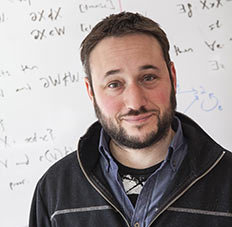
Associate Professor Zach Weber
Former Vice-Chancellor, Emeritus Professor Sir David Skegg is one of two New Zealanders appointed to the International Science Council Covid-19 Scenarios Project.
Ms Michelle Taiaroa-McDonald and Mr Tagiilima Feleti have been appointed as the managers of Te Huka Mātauraka - Māori Centre and the Pacific Islands Centre respectively.
Dr Craig Bunt has been appointed as the inaugural Professor of Otago's Agricultural Innovation Programme.
The Very Rev Dr Graham Redding has been appointed as Otago's first lecturer in chaplaincy. Otago offers New Zealand's only specific university qualifications in chaplaincy.
Professor Neil Gemmell (Anatomy) has been appointed as the new Dean of the School of Biomedical Sciences.
Professor Paul Cooper has been appointed as the new Dean of the Faculty of Dentistry. He will take over the role in July next year.
Hone Paul (Ngāti Manawa, Ngāti Awa, Te Arawa) has been appointed as the University's new Director of Marketing. He comes to Otago from Te Wānanga o Aotearoa.
Faumuina Professor Fa'afetai Sopoaga has been appointed to the role of New Zealand Health Adviser, Samoa with the New Zealand Ministry of Foreign Affairs and Trade (MFAT).
Professor Craig Rodger (Physics) has been elected as vice chair of the "Waves in Plasma" commission of the International Union of Radio Science (URSI) Scientific Union, one of the 10 sections in URSI's structure. URSI was one of the founding scientific unions which now make up the International Council for Science.
Achievements
Chemistry Professor Keith Gordon is the 2021 recipient of the University's highest honour, the Distinguished Research Medal.
See Keith Gordon's High energy profile.
Two Otago academics have been made fellows of the Royal Society Te Apārangi: Distinguished Professor Neil Gemmell (Anatomy) for his research in genomics and biology; and Professor Michelle Thompson-Fawcett (Geography) for her work in advancing contemporary mātauranga Māori and fostering indigenous approaches to culturally-sustainable environmental futures.
Associate Professor Zach Weber (Philosophy) won the Friedrich Wilhelm Bessel Award presented by the Alexander von Humboldt Foundation to “internationally renowned academics in recognition of their outstanding accomplishments in research”.
Dr Robert Odolinski (Surveying) received the Per Enge Early Achievement Award from the international Institute of Navigation for his outstanding achievements in the field of positioning and navigation.
Professor Michael Baker (Public Health, Wellington) received the 2020 Prime Minister's Science Communication Prize in recognition of his outstanding ability to translate his expert knowledge into practical and accessible information to inform the government and people of New Zealand. Professor Baker was also named Wellingtonian of the Year for 2020 at The Dominion Post's annual “Welly Awards”.
See Behind NZ's COVID response
Professor of Buddhism and Asian Religions Ben Schonthal and Religion Head of Programme Associate Professor John Shaver are joint 2021 recipients of the University's annual Rowheath Trust Award and Carl Smith Medal, awarded to early career research staff who demonstrate outstanding scholarly achievement that enhances the understanding, development and well-being of individuals and society.
Dr Meredith Peddie (Human Nutrition), Dr Michael Garratt (Anatomy), Dr Sarah Diermeier (Biochemistry), Dr Charlotte King (Anatomy), Dr Christina Ergler (Geography) and Dr Anna High (Law) have received University of Otago Early Career Awards for Distinction in Research.
dMedia, Film and Communication Associate Professor Hugh Slotten has been awarded the Charles A. Lindbergh Chair in Aerospace History at the Smithsonian Institution Air and Space Museum in Washington DC for the second time.
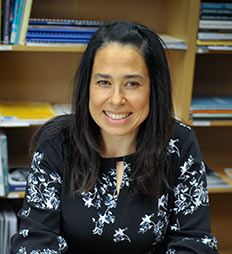 Leanne Te Karu (Pharmacy) received a gold medal from the Pharmaceutical Society of New Zealand for her dedication to improving health outcomes for all, and particularly Māori.
Leanne Te Karu (Pharmacy) received a gold medal from the Pharmaceutical Society of New Zealand for her dedication to improving health outcomes for all, and particularly Māori.
Dr Dianne Sika-Paotonu (Pathology and Molecular Medicine, Wellington) received the New Zealand Association of Scientists' Cranwell Medal for science communication for 2020.
Chief Financial Officer Sharon van Turnhout received a Chartered Accountants Australia and New Zealand Fellowship in recognition of her outstanding achievement and contribution to the accounting profession.
Emeritus Professor Richard Morgan (Geography) received a lifetime achievement award from the International Association for Impact Assessment.
Otago graduate and Fulbright scholar Tom Devine has been awarded the William Georgetti Scholarship to support his studies for a Master in Public Health in Sociomedical Sciences, and History, Ethics and Law at Columbia University, New York City.
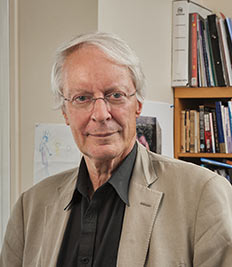 Retired Foundation Director of Otago's National Centre for Peace and Conflict Studies Professor Kevin Clements has been awarded the prestigious International Studies Association's 2022 Distinguished Scholar Award in its Peace Studies Section.
Retired Foundation Director of Otago's National Centre for Peace and Conflict Studies Professor Kevin Clements has been awarded the prestigious International Studies Association's 2022 Distinguished Scholar Award in its Peace Studies Section.
Dr Phil Wilcox (Ngāti Rakaipaaka, Rongomaiwahine, Ngāti Kahungunu ki te Wairoa) has been awarded the Genetics Society of Australasia Award for Excellence in Education.
Management senior lecturer Dr Maja Graso has been awarded the best Academy of Management Perspectives article for 2021.
Queens's Birthday Honours
A number of alumni and former staff received Queen's Birthday Honours.
DNZM: Professor Carolyn Waugh Burns, CBE, for services to ecological research.
KNZM: Mr Grahame Charles Sydney, ONZM , for services to art.
CNZM: Mr David Charles Cull, for services to local government; Emeritus Professor David Eric Richmond, for services to health and education; Dr Robert Simon Hearn Rowley, for services to paediatric and neonatal care; Dr Maxwell Gilbert Shepherd, JP, for services to biotechnology and business.
ONZM: Mr David Ross Black, for services to health; Mrs Margaret Agnes Chapman, for services to rural women and rural communities; Dr Anne Denise Guy, for services to infant mental health; Mrs Mary Joan McFarlane, for services to swimming.
MNZM: Dr Graeme Alexander Downes, for services to music and music education; Mrs Lala Athene Frazer, QSM, for services to conservation; Mrs Sally Anne Jackson, JP, for services to special education; Mr Hoani Sydney Langsbury, for services to conservation; Ms Caron Orelowitz, for services to podiatry; Mrs Samantha Anne Powell (Murton), for services to medical education, particularly general practice.
QSM: Dr Alastair Hartley Blackie, JP, for services to dentistry and local government; Dr Derek Clifton Gibbons, for services to health; Mrs Benita Jane Robinson, for services to the community; Mr Paul Eric Tyson, for services to sport and the community.
In the Australian Queens Birthday Honours, Professor Glenn Summerhayes received the Order of Australia for his contribution to tertiary education and history.
Emeritus Professors
The University Council has awarded Emeritus Professor status to:
Professor Robert Aldred (Mathematics and Statistics); Professor Tony Binns (Geography); Professor Phil Bishop (Zoology); Professor Timothy Crack (Accountancy and Finance); Professor Alison Cree (Zoology); Professor Steve Dawson (Marine Science); Professor John Horwood (Psychological Medicine, UOC); Professor Raechel Laing (Division of Sciences); Professor Janice Murray (Clothing and Textile Programme); Professor Inguruwatt Premachandra (Accountancy and Finance); Professor Poia Rewi (Te Tumu School of Māori, Pacific and Indigenous Studies); Professor Edward Shipton (Surgery and Anaesthesia); Professor Liz Slooten (Zoology); Professor Jean-Claude Theis (Surgical Sciences); Professor Murray Tilyard (General Practice and Rural Health); Professor Ian Tucker (Pharmacy); Professor Graham Wallis (Zoology).
Obituaries
Sir Eion Edgar, KNZM, aged 76. A visionary businessman and philanthropist, Sir Eion had a long association with the University of Otago. As a student he was a member of the OUSA executive and graduated with a BCom in 1967. A proud and active alumnus, he served on the University Council for 23 years from 1981, including seven years as Pro-Chancellor, and four as Chancellor from 1999 to 2003. In 2003 he was awarded an Honorary Doctor of Laws for outstanding service. Sir Eion was also instrumental in developing the University's Leading Thinkers fundraising initiative, including helping to establish the Edgar Diabetes and Obesity Research Centre in 2003 with a generous foundation donation made by the Edgar family. He chaired the centre's advisory board and was also patron of Diabetes New Zealand.
A respected member of the New Zealand haematology community, Associate Professor John Carter, MNZM, was a staff member at the University of Otago, Wellington from 1985, continuing in a casual capacity after his retirement. He was also Clinical Lead for Haematology at the Wellington Hospital until 2018.
Emeritus Professor George Petersen, ONZM FRSNZ, aged 87. An Otago alumnus, George Peterson was appointed to a Chair in Biochemistry in 1968 and remained head of the department until 1991, continuing as an active researcher until his retirement in 1999. His many accolades included a Doctor of Science from Oxford University in 1993 for his outstanding contributions to DNA research; the Marsden Medal in 1995 for outstanding national scientific leadership; an Honorary Doctor of Science from the University of Otago in 2000, and the Rutherford Medal from the Royal Society of NZ in 2003.
A stalwart of Pharmacology at Otago, Emeritus Professor Fred Fastier recently died at the age of 101. An Otago alumnus, he studied and worked overseas before returning to the University in 1952 as a senior lecturer in Pharmacology. In 1969 he was appointed to the Foundation Chair of newly-formed Department of Pharmacology and Pharmacy. He played a pivotal role in the development of the first pharmacy curriculum at the University and was a founding member of the Otago Pharmacological Association. Professor Fastier retained strong connections to the University after his retirement and supported several initiatives for students.
See Emeritus professor gifts estate to University
Emeritus Professor David Russell was the first Dean of the School of Physical Education (1981-91). He was also co-director of the Lifestyles in New Zealand (LINZ) research group and was the first New Zealand academic to be inducted as an International Fellow to the National Academy of Kinesiology (USA).
Yvonne Brouwer joined the College of Education in 1991 as a teacher educator, with a particular focus on Māori education within mainstream primary education.
Following a successful career as a researcher in her own right, Judith Candy joined the staff of the University of Otago, Christchurch in 2013 in the role of a CDHB research advisor.
The University also acknowledges the sad loss of two members of the residential colleges' catering teams: Nigel Donehue and Michael Caldwell.

